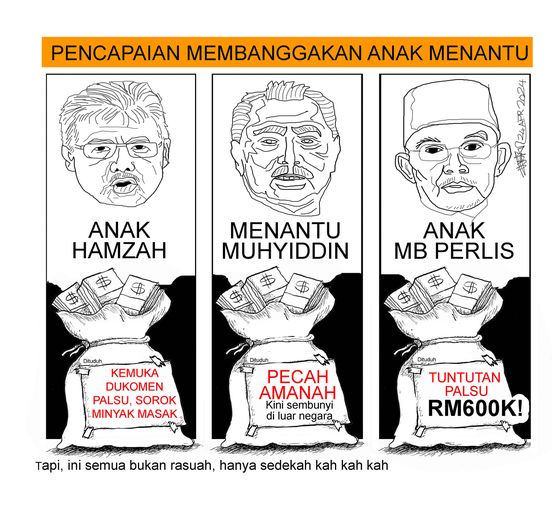By Xavier Kong
AS the Movement Control Order (MCO) ordered by Prime Minister Tan Sri Muhyiddin Yassin on March 18 goes on into its third week, complaints have been received that there are goods that have seen price hikes, with some increases exorbitant in nature.
Channel checks by FocusM have shown price hikes on a number of sundry goods and groceries, as well as disinfectants for sale, with a particular example coming from e-commerce platforms Lazada and Shopee, which show disinfectant sprays being sold for between RM70 to RM80 per 450ml spray can.


Complaints have been made against the two platforms, but neither seems to have taken action against the sellers in question.
At the same time, groceries and foodstuff have also seen increased prices, as the Ministry of Domestic Trade and Consumer Affairs conducts checks on vendors and sellers, including supermarkets.
According to a social media update from the ministry, when vendors are found to have raised prices, they are “advised to not raise the prices of goods.”
Still, the policing of the supermarkets and physical vendors should bear a heavier weight for price-gouging, as advice can be “taken into consideration, then ignored.” Sterner action, whether by the Ministry of Domestic Trade and Consumer Affairs or the management of e-commerce platforms, should also be taken against online sellers who are taking the opportunity to sell goods at exorbitant prices, with some even selling masks at higher prices than the mandated ceiling price of RM1.50.
However, the rise in food prices, especially fresh food, could be due to different sources. Wholesalers and industry players are putting out warning signs about shortages in food supplies, pointing towards the disruption of the distribution of fresh produce by national travel restrictions under the MCO, according to Free Malaysia Today.
Farmers and fishermen have had to cut production capacity as sales are lower, with middlemen unable to get to the producers to distribute their goods, and that many distributors and retail suppliers have stopped operations.
According to Ibrahim Mohamad of the Malay Fish Wholesalers Association of the Federal Territories and Selangor, wholesalers are not ordering as much fish because of the lower demand from small traders while demand for fresh food is also decreasing as people are opting for food items with a longer shelf life.
“If the management of food supplies is not improved, it could lead to shortages if the MCO is extended. The people who are producing food – they are there, but they cannot distribute because of all the restrictions,” said Ibrahim.
This brings about the issue of supply and demand that needs to be looked at by the current administration. As demand for fresh food with people opting for more shelf-stable goods, the middlemen and wholesalers will be forced to bring in less fresh produce to minimise their own losses.
This in turn causes the producers to reduce production or not produce at all, since there will be no recompense for any surplus production. It is likely that these producers will, in the near to medium term, face issues of staying afloat should the MCO continue any further. – April 6, 2020










